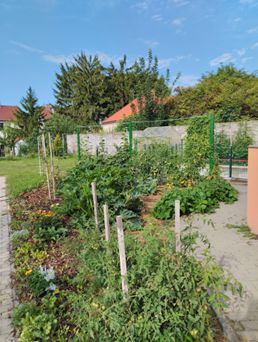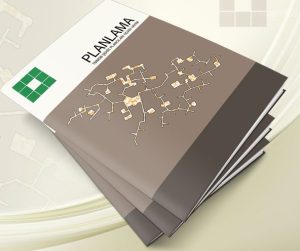Sustainable Urban Food Production with a Special Focus
on Permaculture from Hungarian Perspectives
Andrea Uszkai

In recent years in Hungary, interest in sustainable agriculture and food systems has grown, especially in the context of accelerating climate change. Conventional agriculture—highly mechanized, input-intensive, and monoculture-based—faces mounting criticism for its environmental impacts (e.g. soil degradation, biodiversity loss). The study compares various sustainable agriculture approaches (such as climate‑smart, regenerative, conservation agriculture, organic farming, agroforestry and permaculture) in terms of their definitions and principles. It argues that urban areas can also play a role in sustainable food production. The paper places particular emphasis on permaculture, viewing it as an advanced, integrative methodology that is gaining traction in Hungary.
Methodology
To explore how permaculture is understood and practiced in Hungary, in-depth interviews with four permaculture practitioners were conducted from diverse regions, as well as participatory observations via local permaculture clubs, garden visits, and literature review. The interviewees included both full-time and part-time practitioners, with varying tenure in permaculture, and operating in settings ranging from small gardens to farms with livestock integration. The study also draws on the Hungarian Permaculture Association’s database, which catalogues permaculture farms, gardens, and services across the country.
Results
The findings show that Hungarian practitioners often adapt or reinterpret classical permaculture definitions (e.g. by Mollison) considering local conditions and aspirations. One sees permaculture as a chemical‑free, sustainable ecosystem balancing soil, plants, and animals; other frames it as more than agriculture—extending to lifestyle, community, and ethical relationships with nature. Among the reported advantages are environmental benefits (enhanced ecosystem services, soil health, biodiversity), economic gains (lower inputs, local production, possible supplementary income), and social gains (community engagement, education, mental well-being). However, obstacles were also identified: low public awareness and misunderstanding of permaculture, limited diffusion beyond early adopters, challenges of mechanization in heterogeneous systems, and unpredictability in yield compared to standardized cropping systems.
Discussion and conclusion
The paper argues that permaculture (and nature‑based agricultural systems more broadly) offers a promising route toward climate‑friendly, sustainable food systems—even in urban or peri-urban settings. Nevertheless, scaling up will require better knowledge-sharing networks, institutional support, and bridging of social gaps. The author calls for more coherent national and international networking of initiatives, stronger community engagement, and integration into policy frameworks (such as the EU’s Common Agricultural Policy).
 Andrea Uszkai (2025) Sustainable Urban Food Production with a Special Focus on Permaculture From Hungarian Perspectives. PLANLAMA 35 : 1 pp. 123-133. , 11 p.
Andrea Uszkai (2025) Sustainable Urban Food Production with a Special Focus on Permaculture From Hungarian Perspectives. PLANLAMA 35 : 1 pp. 123-133. , 11 p.

